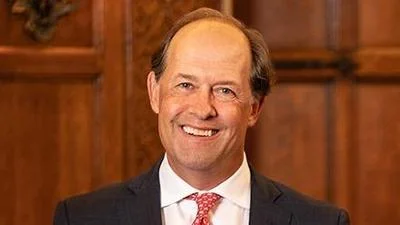The United States House of Representatives has adopted a plan that includes $42 billion for restaurants and $13 billion for a hard-hit sectors program that would assist small firms that were not eligible for restaurant aid.
That proposal, however, received just the support of six House Republicans, indicating that it lacks the support needed in the equally divided United States Senate to reach President Joe Biden's desk.
That's when Maryland Democratic Sen. Ben Cardin and Mississippi Republican Sen. Roger Wicker stepped in with their own bill, which would offer $40 billion to eateries and $8 billion to small businesses.
"We're looking at whatever method we can get things moving as fast as possible because it's fairly desperate," Cardin said during a brief interview.
Aside from the $2 billion financing shortfall for restaurants, the main differences between the proposals include how money is provided for non-restaurant industries and how the law is paid for.
The House plan would create a $13 billion fund for firms with 200 or fewer employees that incurred a 40 percent or greater revenue loss due to the epidemic. Businesses might receive up to $1 million in funding.
Cardin and Wicker's Senate measure would create distinct pools of money for diverse industries.
Two billion dollars would be available for gyms that lost more than 25% of their revenue; $2 billion would be distributed to live event venues that lost more than 25% of their revenue; $2 billion would be distributed to buses and ferries, including charter buses, commuter buses, school buses, and passenger ferries; $1.415 billion would be distributed to very small businesses located near land border crossings that were closed during the pandemic, and $500 million would be distributed to individuals.
An extra $75 million would be allocated to small companies in Alaska that were shut off from the rest of the country during the epidemic due to border closures. In addition, $10 million would be available for small enterprises in similar locations in Minnesota and Washington.
"During the height of the epidemic, Congress took action to give much-needed relief to restaurants and other businesses, but the first program left thousands of qualifying establishments and their employees without help," Wicker said in a statement. "As our economy recovers from a terrible two years, it is critical to refill this fund for justice's sake."
The restaurant assistance would be sent to the Restaurant Revitalization Fund, which Democrats established in their $1.9 trillion COVID-19 relief plan last year.
Democratic legislators initially approved $28.6 billion, but demands for more than $76 billion swiftly eclipsed the amount of money the Small Business Administration had to provide struggling eateries. Approximately two-thirds of the eateries that asked for money did not obtain it.
As a result, various organizations have called on Congress to offer additional assistance to restaurants in order to fund salaries, running expenditures, and building costs for outside dining spaces.
The National Restaurant Association's Mike Whatley, vice president of State Affairs and Grassroots Advocacy, stated that certain restaurants receiving assistance while others did not "established an unequal playing field."
"There was nothing wrong with these establishments. "They applied, filled out their paperwork, were qualified, and then the help didn't come," Whatley explained.
Concerns that further federal spending on COVID-19 assistance might worsen the country's already-rising inflation do not necessarily apply to the Restaurant Revitalization Fund, he says.
According to Whatley, many of the eateries requesting assistance want to utilize government funds to pay off invoices and other problems.
"We feel that for restaurants and the RRF, this should be a bipartisan issue, and Congress should figure it out and get it done to close the gap," he added.
Several politicians have argued against increased pandemic expenditure, noting inflation and reduced COVID-19 instances across the country.
Restaurants continue to endure pandemic limitations, according to Whatley, who added that Philadelphia is resuming its mask mandate and that new varieties are anticipated to emerge.
Original source can be found here.


 Alerts Sign-up
Alerts Sign-up